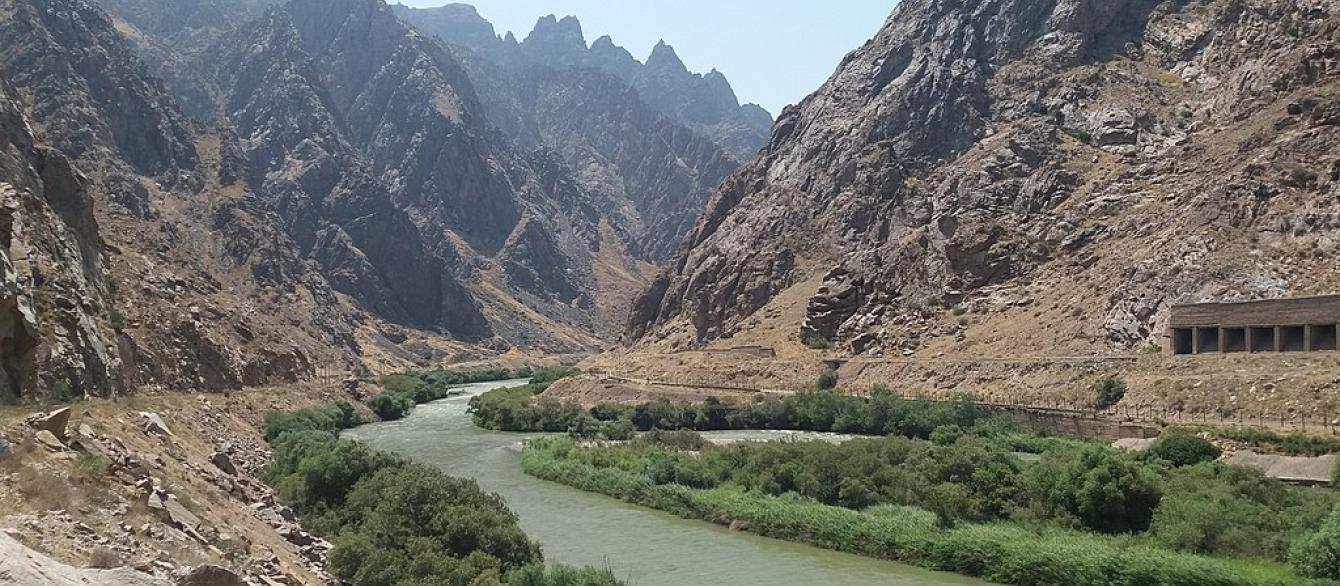This article was originally published by RFE/RL and is reprinted with permission.
Negotiations over a peace deal between Armenia and Azerbaijan are continuing, even as refugees continue to stream into Armenia following Azerbaijan's military assault on the breakaway region of Nagorno-Karabakh last week.
Senior advisers to Armenian Prime Minister Nikol Pashinian and Azerbaijani President Ilham Aliyev met on September 26 in Brussels, in preparation for a potential meeting between the leaders themselves in Spain on October 5.
A peace deal could — at least on paper — put to rest the decades-old conflict between the two sides. But there are broad fears in Armenia that Azerbaijan is not truly interested in peace, and that it may have further designs on Armenian territory — including carving out territory for a transport corridor — which could make it politically risky for the Armenian government to sign a deal.
Azerbaijan's 24-hour offensive, which resulted in the surrender on September 20 of the separatist ethnic Armenian leadership that has ruled the territory since the 1990s, has partially resolved one of the thorniest issues that the two sides had been trying to work out: the fate of Karabakh's ethnic Armenian population. Azerbaijan has embarked on an effort to "reintegrate" the Karabakh Armenians into Azerbaijani structures, while the Armenians themselves are fleeing the territory by the tens of thousands.
Pashinian and his allies have said they remain committed to reaching an agreement. "We are very close and have a historic opportunity to sign a peace agreement," parliament speaker Alen Simonian told Armenian public television on September 25. "Endless war is not beneficial for anyone."
Baku and Yerevan have been locked in a conflict over Nagorno-Karabakh for decades. Armenian-backed separatists seized the mainly Armenian-populated region from Azerbaijan during a war in the early 1990s that killed some 30,000 people. Diplomatic efforts to settle the conflict brought little progress and the two sides fought another war in 2020 that lasted six weeks before a Russian-brokered cease-fire, resulting in Armenia losing control over parts of the region and seven adjacent districts.
In 2022, Armenia and Azerbaijan started talks on a peace agreement that would formally delimit their mutual border, renounce territorial claims against each other, reestablish diplomatic relations, and rebuild transport links that have been broken for more than three decades. Those talks failed to prevent a violent resolution of the Karabakh issue, but they are set to continue as the two leaders work out the other issues on their agendas.
'The Next Big Issue'
The last point — rebuilding the transport links — has been one of the most contentious and, in recent days, has prompted much mutual speculation. Azerbaijan and its key ally Turkey have signaled that, at least rhetorically, they are stepping back on one of their demands: that Armenia allow a road through its territory connecting Azerbaijan's mainland and its exclave of Naxcivan. Now that Nagorno-Karabakh has been fully reconquered, the transportation question represents "the next big issue" in Armenian-Azerbaijani talks, wrote Thomas de Waal, an analyst at Carnegie Europe.
At issue is a transportation route that has become known by Azerbaijan's term for it, the "Zangezur Corridor," which was borne out of the cease-fire agreement that ended the 2020 war between the two sides. That deal included a provision committing Armenia to "guarantee the security" of transportation connections between Azerbaijan's mainland and Naxcivan. It didn't specify any particular route, but the shortest way between Naxcivan and the rest of Azerbaijan is through Armenia's Syunik Province, known in Azerbaijan as Zangezur. [See map here.]
The 2020 agreement further stipulated that movement on those routes should be "unobstructed," which led to disagreements about what, precisely, counted as an obstruction. Azerbaijanis initially signaled that they wanted the road to be a true corridor, with no Armenian border or customs officers checking vehicles or cargo as it passed through Armenian territory.
The route would connect Azerbaijan more tightly to Turkey, which shares a border with Naxcivan but not with mainland Azerbaijan. And Azerbaijani and Turkish officials have spoken of the would-be corridor in grandiose terms, as a means of linking the entire Turkic world, from Istanbul to Central Asia, with uninterrupted East-West road and rail connections.
The Armenian side has objected that that would amount to the country losing sovereignty over part of its territory, and a strategically vital part at that: The presumed route of the corridor would pass along the Iranian border, potentially hindering Armenia's access to Iran, one of its key regional allies and trade partners.
Iran, too, has objected, repeatedly hinting that it would not allow its border with Armenia to be obstructed. Armenia's fears were exacerbated by barely veiled threats from Aliyev to impose the corridor by force: "The Zangezur Corridor is a historical necessity," the president said in January. "It will happen whether Armenia wants it or not." Iran has not officially commented on the issue since the Karabakh surrender.
'Open Up, Or Else'
In the days ahead of this month's Azerbaijani offensive, Erdogan used his address at the United Nations Security Council to accuse Armenia of not fulfilling its commitment to open the Zangezur Corridor, a topic heavily covered in Turkish pro-government media. And on the day that the Karabakh authorities surrendered, Hikmet Haciyev, Aliyev's senior foreign policy adviser, made a similar accusation.
It all fed into fears that Azerbaijan, having reestablished control over Nagorno-Karabakh, would not stop there and would eventually extend its advance into Armenia itself.
But after Erdogan met with Aliyev in Naxcivan on September 26 to help celebrate the victory in Karabakh, Aliyev barely mentioned the transportation issue. "The construction of the railway connecting Azerbaijan with Naxcivan and Turkey is also progressing successfully," Aliyev said, not mentioning Armenia at all or using the term "Zangezur Corridor." "The work in the territory of Azerbaijan will most likely be completed by the end of next year."
And as Erdogan returned to Turkey, he spoke with the media accompanying him and said that Armenia wasn't necessary for the project at all. "If Armenia does not pave the way for [the corridor], where will it pass through? It will pass through Iran," he said. "Iran currently considers this positively. So, it would be possible to pass from Iran to Azerbaijan." At a cabinet meeting later in the day, Erdogan reiterated the statement.
Erdogan's argument has not been confirmed by Azerbaijani officials, but the idea was presaged in a September 17 article on Haqqin.az, a website associated with Azerbaijan's security services. It differentiated between a "Western Zangezur Corridor" through Armenia and an "Eastern Zangezur Corridor" through Iran. It concluded: "If Yerevan continues to delay the opening of the Western Zangezur Corridor, then Azerbaijan will open the Eastern Zangezur Corridor with Iran, which means that Armenia will remain outside of yet another strategic project and will once again be a loser."
A senior official in Azerbaijan's Foreign Ministry, speaking on condition of anonymity, confirmed to RFE/RL that the Iranian route would be acceptable for Baku. "The ball is in Armenia's court. If this country wants to establish overland communication with the outside world after 30 years of self-imposed isolation, they have to live up to their obligations on the Zangezur Corridor. If not, the communication will be established anyway, but in this case via Iran thus bypassing Armenia," the official said.
As to whether Armenian officials would be able to monitor traffic on the road, the official said that was of secondary concern and would be a matter of negotiations. "The most important [thing] is the opening of the traffic itself," the official said.
Not Pushing Pashinian
Azerbaijan does not want to put additional pressure on Pashinian at a time when he is vulnerable domestically because of public outrage over the fate of Karabakh Armenians, says Fuad Shahbaz, a Baku-based political analyst. Azerbaijani officials fear that domestic turbulence in Armenia could result in revanchist forces coming to power in Yerevan. "Aliyev will give Armenia a bit of time to handle domestic unrest," Shahbaz said.
He noted that Aliyev conspicuously praised Pashinian — who during the offensive announced publicly that Armenian armed forces would not intervene — in a victory address to the nation on September 20. "During this period, today and yesterday, Armenia has unexpectedly shown political competence, which we appreciate," Aliyev said.
Aliyev also warned that "we must ensure that the other side does not live with revanchist ideas, and they must also rest assured that we do not have sights on their land. We recognize their territorial integrity."
So, Baku may not push for the corridor to be included in a peace deal but would revisit the question later, Shahbaz suggested: "Azerbaijan may return to the topic but on favorable conditions for Armenia as well, not to trigger more unrest in Yerevan," he said.
Armenian officials have said they have not changed their position on the corridor: They are interested in rebuilding regional transportation connections but reject a road that they wouldn't control. "Armenia has never agreed and will never agree to any sort of extraterritorial or corridor logic," Armenian Territorial Administration and Infrastructure Minister Gnel Sanosian said on September 25. "But at the same time, we are committed to agreements that have been reached at high levels."
Some analysts have suggested that Azerbaijan and Turkey's championing of the Iran option may just be tactical, and that Baku still remains interested in a route through Armenia.
"I don't believe that Azerbaijan and Turkey will forget about connecting Azerbaijan with Turkey via Armenia," said Benyamin Poghosian, the founding director of the Yerevan-based Center for Political and Economic Strategic Studies. "The road via Iran can be an alternative but not the main one." He says he believes Baku is merely biding its time and will eventually demand a Zangezur Corridor as well as other territorial concessions.
"Armenia will not be able to say yes to these demands," Poghosian said, "and then Azerbaijan will use the Armenian rejection as a casus belli."
Text copyright (c) 2023 RFE/RL, Inc. Used with the permission of Radio Free Europe/Radio Liberty, 1201 Connecticut Ave NW, Ste 400, Washington DC 20036.
Photo shared under a CC BY-SA 4.0 license.






